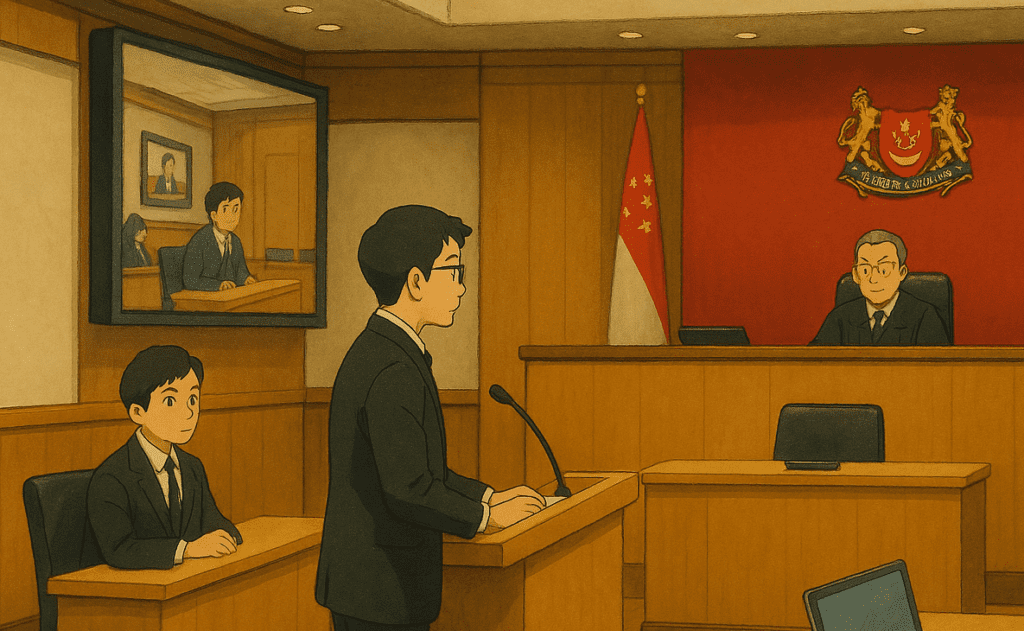By Boo Kok Chuon and Rajvant Kaur
Omnia Law unpacks the copyright confusion surrounding viral Ghibli-style AI images
Introduction
The internet was recently enchanted—and then legally confused—by a viral wave of AI-generated images in the beloved “Studio Ghibli” style. It all began when an AI-generated anime short depicting Malaysian ministers Anwar Ibrahim and Zahid Hamidi as Ghibli-like characters set social media abuzz. The style was whimsical, dreamy, and instantly recognizable… perhaps too recognizable.
Soon after, a fake cease-and-desist letter claiming to be from Studio Ghibli, Inc. started circulating online, warning against the “unauthorized use” of Ghibli’s visual style. Although later debunked as a hoax, the incident sparked a very real question:
Can you copyright an artistic style?
The Short Answer: No. But Also… Kind Of.
Under most copyright regimes—including Singapore’s—copyright protects specific expressions, not ideas or abstract styles. This means:
- Ghibli can protect characters like Totoro or No-Face.
- Ghibli cannot copyright “a warm, nostalgic art style with soft lighting, big-eyed characters, and emotionally evocative landscapes.”
However, companies often invoke what’s called “trade dress” or brand association when a particular style becomes indistinguishable from their brand identity. While not copyright in the strict sense, it allows them to allege consumer confusion, especially in commercial settings.
That said, using an inspired style for non-commercial, transformative, or satirical purposes is generally defensible—especially when it’s clearly not passing off as the real deal.
A Quick Guide to Copyright in Singapore
In Singapore, copyright law protects original expressions of ideas—not the ideas or styles themselves. This includes:
- Literary, dramatic, musical, and artistic works (including drawings, animations, and characters)
- Original works automatically gain protection upon creation—no registration is needed
- Copyright generally lasts for the life of the creator plus 70 years
What it doesn’t protect: general concepts, art styles, vibes, or techniques. You can’t copyright “watercolour aesthetics” or “anime-style round eyes.”
However, if a specific expression of that style—like Totoro or Howl—is copied, that is infringement.
AI Muddies the Waters
The rise of generative AI tools like ChatGPT (combined with DALL·E and other image models) adds fuel to this fire. These tools learn from vast datasets, including art styles from popular culture. When a user prompts the AI to create something “in Ghibli style,” is that infringing?
At present, there is no clear global consensus. But legal experts are watching this space closely, and several lawsuits (especially in the US) may soon set precedents. What’s clear is that copyright law was never designed with machine-generated creativity in mind.
What This Means for Artists, Developers & Content Creators
- Be inspired, but don’t copy protected characters or trademarks. Using a “Ghibli-style” landscape? Likely fine. Drawing Totoro into it? Now you’re dancing on thin legal ice.
- Avoid using brand names in marketing without permission. Promoting your app as “Ghibli-like” can attract legal scrutiny, even if the art doesn’t directly infringe.
- Understand fair use (or fair dealing in Singapore). Satire, parody, and commentary enjoy greater protection—but only when the work is transformative, not derivative.
- If you’re commercializing AI art, consult legal advice early. It’s one thing to post for fun; it’s another to build a business around it.
Final Thoughts: Law vs. Magic
Studio Ghibli built its legacy by creating worlds filled with wonder, warmth, and originality. Ironically, the recent debacle shows just how deeply their style, not just their stories, has seeped into the global imagination.
At Omnia Law, we believe that creativity and legal clarity can coexist. Artists and innovators should feel empowered to explore—but also equipped to navigate the evolving boundaries of IP law in the age of AI.
Need help navigating copyright in a world of AI and inspiration?
Contact Omnia Law for a consult. Whether you’re an artist, app developer, or entrepreneur, we’re here to help you stay both creative and compliant.

